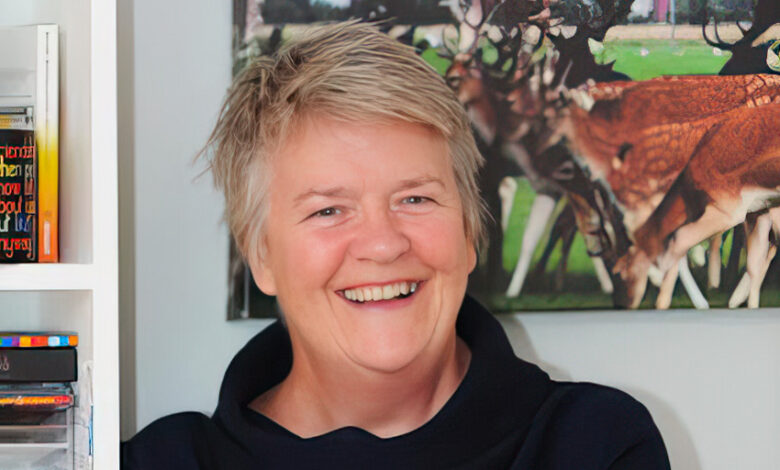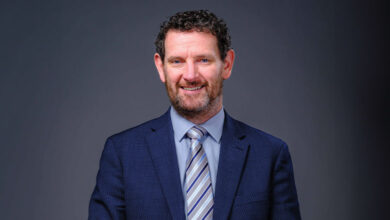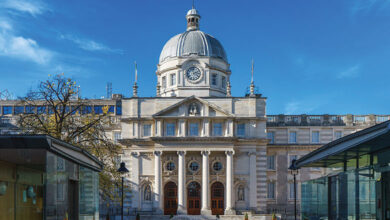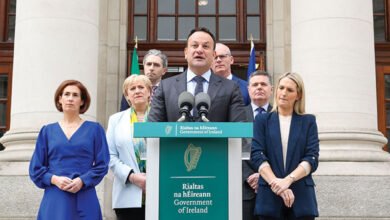Safe Ireland: ‘Once-in-a-generation opportunity’

The inability to ‘read’ domestic, sex, gender, and sexuality-based violence (DSGSBV) as a large-scale problem, not reducible to poor personal choice, has been a significant factor in obscuring its dynamics. It prevents the development of integrated, systemic, and flexible responses, writes Mary McDermott, CEO of Safe Ireland.
Historically, DSGSBV has been repeatedly relegated to a privatised domain and has remained largely invisible, structurally. In Irish culture, conversely, coercion and domination are often ‘naturalised’ in representations of relationships.
Intimacy and intimidation are frequently conflated in popular cultural renditions of erotic and ‘home’ life, which ground the ambiguity and fatalism so present in public discussion. The entire social phenomenon rests on axes of power around sex, gender, and sexuality and affects all forms of homes, households, and relationships, in adulthood and childhood.
Across these diverse axes, however, there are repeating hierarchical patterns of domination and exploitation by males over females and, wherever they occur, the coercive impact of toxic gendered rules, roles and ‘masculinities’.
Safe Ireland acted as an advisor/co-designer in the development of the third National DSGBV Strategy. It is a challenging and future-facing document. Central to its efficacy will be the capacity to think ‘holistically’ about DSGBV, and to enable the newly forming DSGBV agency in the Department of Justice, with oversight within the Department of An Taoiseach, to have the reach it needs to act.
Many positive changes are emerging in relation to recognition of DV survivors as a distinct cohort, across all social groups, who need specific supports. Nevertheless, crucial points of vulnerability and invisibility remain. DV survivors’ specific needs must be met to enable the journey to independence: in housing and homelessness; in social protection measures which recognise poverty induced by financial control; in addressing legislation which silences survivors via the ‘in-camera’ rule; in countering the weaponisation of court proceedings by perpetrators; and through increased capacity of professionals and frontline responders to identify extended post-separation abuse.
We know in Ireland that change can come from the ground up – people think and feel their way into changing communities and society. We also know that we act our way into new change and growth. The smoking ban provides an obvious example.
Safe Ireland imagines a truly democratic country where anyone enduring an oppressive and coercive relationship can access the supports they need to escape coercion and start again – safely. Note the stark contrast between Ireland’s bankruptcy/insolvency laws, for example, which expressly supports the idea of a ‘fresh start’ – while women experiencing domestic abuse remain trapped in financial, physical, and psychological danger.
The work of creating a state-of-the-art infrastructure which responds appropriately to all iterations of domestic, sex, gender, and sexuality-based violence will be a cutting-edge public and civil service enterprise. An integrated system of DV prevention measures with swift, flexible specialist supports for victims, all informed by world standard policies, data collection and analytic systems, provides a perfect test-case for Ireland’s aspiration to be a fit 21st century democratic state. Safe Ireland is hopeful. This is a once-in-a-generation opportunity.
Safe Ireland SafeIreland is a national development and coordination body working to eradicate domestic violence (DV). We examine the causes and effects of domestic, sex, gender, and sexuality-based violence (DSGSV). We work to influence civil society and national policy through research, advocacy, and collaboration; through direct refuge and specialist service provision; through our networks of affiliated independent frontline DV services, local communities, professionals, public bodies, academic institutions, philanthropists, and corporate partners. Safe Ireland’s network supports 38 affiliated specialist DV services, including 20 refuges. Each delivers supports which include; national/local helplines, crisis refuge and move-on accommodation, legal/court accompaniment, welfare, health/therapeutic, advocacy and child supports. |





